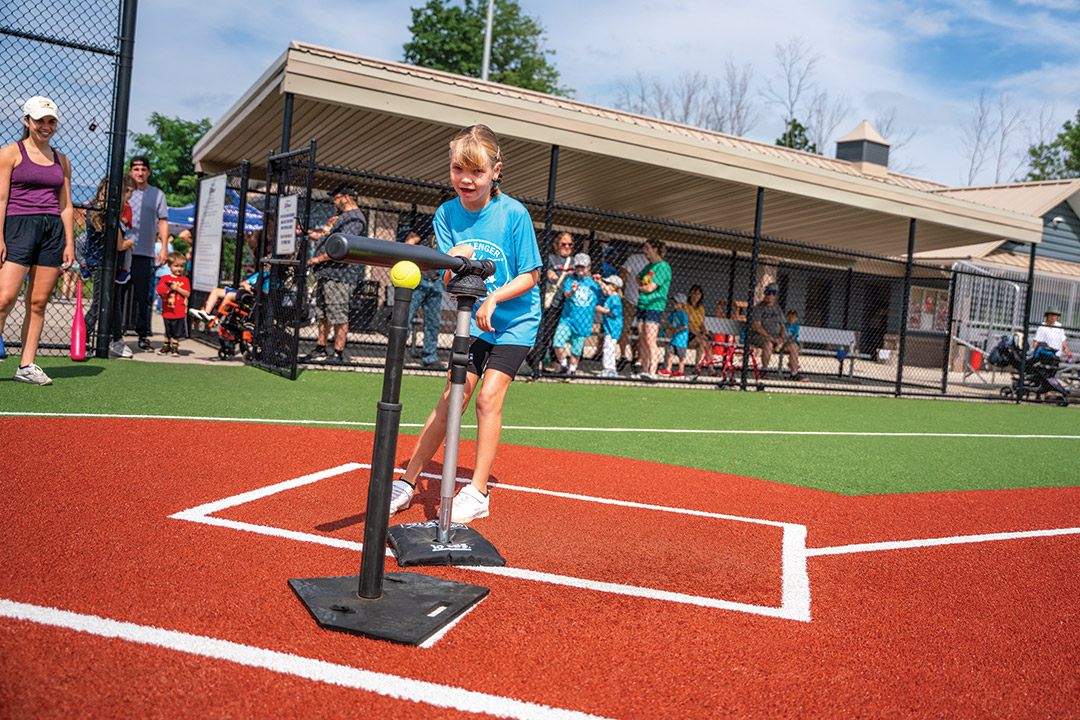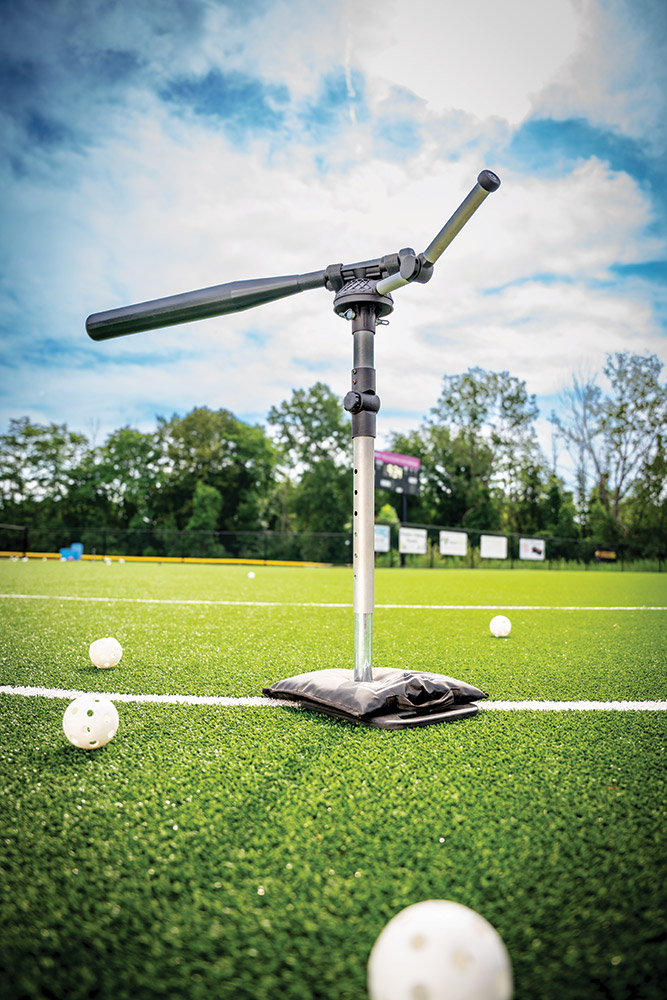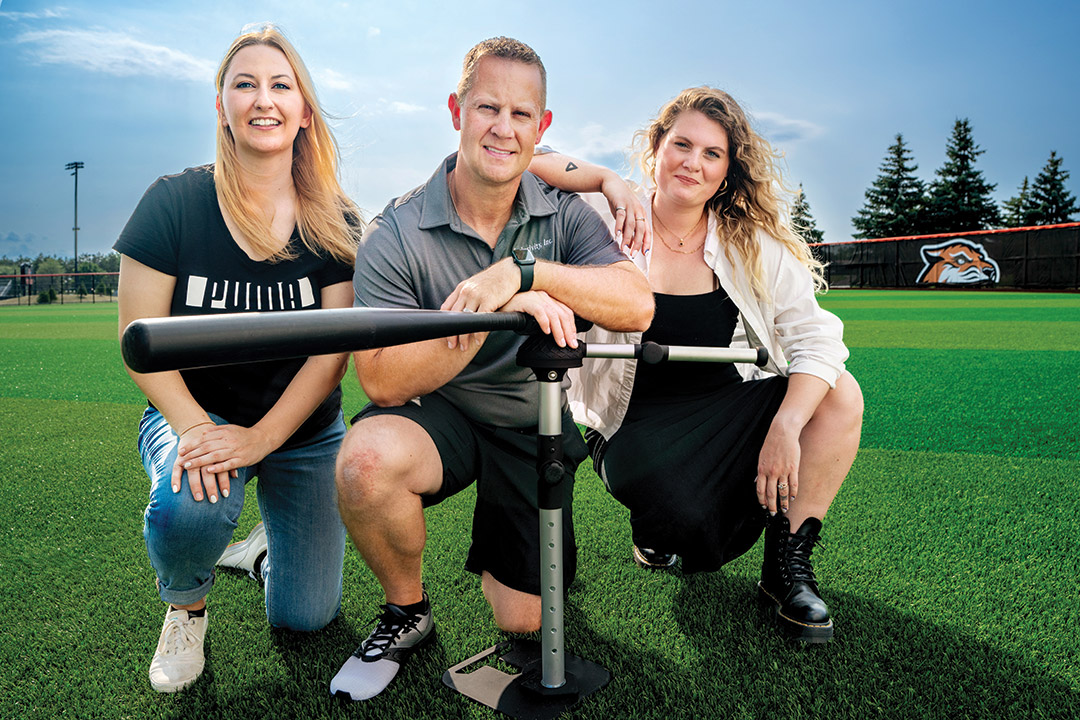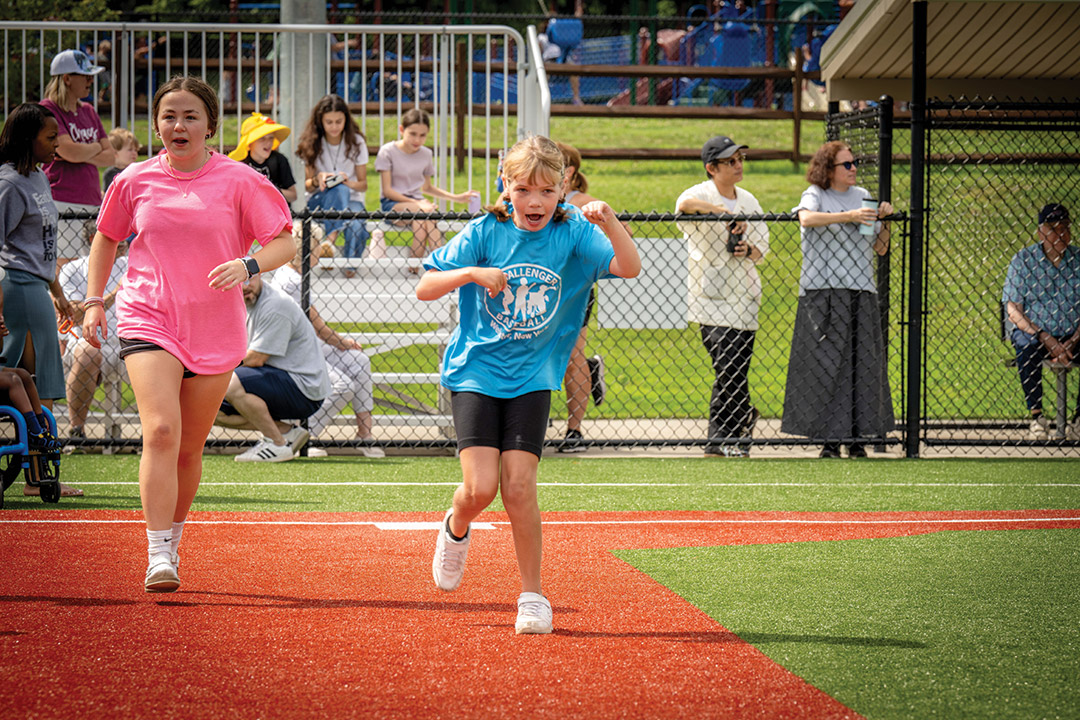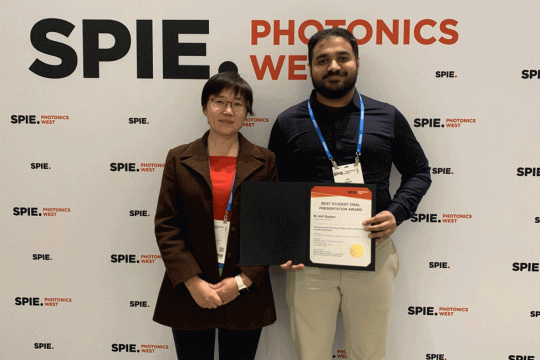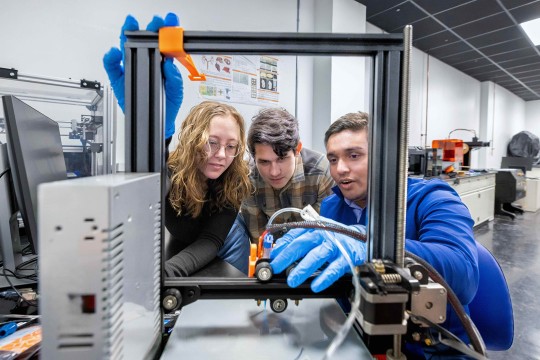Overcoming obstacles: Students’ game-changing product breaks barriers
Travis LaCoss
Annabelle Kresge is one of the youngsters using The Overcomer, an assistive device designed by RIT students.
Annabelle Kresge took a swing of the bat and knocked the baseball into play. As the 12-year-old rounded the bases, the crowd cheered.
Travis LaCoss
The Overcomer is an interchangeable assistive device that can be used for baseball, lacrosse, and tennis.
Annabelle gets to score runs because of students in RIT’s Multidisciplinary Senior Design (MSD) program. Their work resulted in The Overcomer, a patented device being used by children and adults with mobility challenges to play sports at the Special Olympics and in schools, nursing care facilities, sports leagues, and homes around the world.
“Our students aren’t just developing widgets anymore. They are solving real-world problems, and this project, like many of them, is making a difference for a community that is sometimes overlooked,” said Beth DeBartolo, MSD director and associate professor of mechanical engineering in the Kate Gleason College of Engineering. “The companies and people they are working with have access to the breadth of RIT resources for entrepreneurs.”
The Overcomer was the dream of Joe Kabes, a physical education teacher in the Rochester suburb of Webster, N.Y. He first approached RIT in 2016 about building adaptive equipment.
In the MSD program, engineering students take an idea, assess customer requirements, and then plan and design a product, which includes building a prototype. Students from art, business, and computing can collaborate with engineering students in the year-long course—modeling project teams found in companies.
Travis LaCoss
Joe Kabes, center, worked with several Multidisciplinary Senior Design program teams to develop The Overcomer. Nicole Bureau ’18, ’18 ME, left, and Emma Sarles ’17, ’19 MS, ’22 MS, ’23 Ph.D., right, were part of the first team and are named on the patent.
“I had reached my capacity for adapting equipment and needed the help of engineers to take my equipment and designs to the next level,” Kabes said. “RIT has so much to offer, and I learned a lot through the process.”
As an undergraduate, Emma Sarles ’17 (industrial design), ’19 MS (professional studies), ’22 MS (industrial and systems engineering), ’23 Ph.D. (biomedical and chemical engineering) was part of the first design team in 2016 that worked with Kabes.
“He gave us very specific design goals and wanted us to take his idea to the next level,” she said. “He wanted the device to have capabilities for throwing, catching, and shooting for those with cerebral palsy or spinal cord injuries.”
Students devised a sturdy device consisting of an upright metal pole on a base with flexible arms that is able to couple with attachments—a lightweight bat, modified lacrosse stick, or tennis racket. The device needed to be lightweight, adjustable, and easy to attach to a wheelchair or walker.
Since 2016, a dozen MSD teams worked on system and design improvements to The Overcomer and related devices, which included testing it in the Rochester community. In 2019, The Overcomer was granted a patent.
Travis LaCoss
Rochester Challenger Miracle Field in Webster, N.Y., hosts children of all ages for sports.
Fifteen students from the early project teams are included in the patent document. In 2022, FlagHouse, a national company that produces learning and assistive products for educational institutions, started producing it. Nearly 400 have been sold in just over a year on the market.
“He did what he set out to do,” said Nicole Bureau ’18, ’18 ME (mechanical engineering), who was project engineering lead in 2017 and is listed on the patent. “He ultimately wanted to get a product to schools and families, and he did that. This was the biggest project I had worked on up to that point, and in job interviews I frequently referenced it to demonstrate my engineering skills.”
Currently, Bureau is a mechanical design engineer at L3Harris, an international communications company, working on one of the company’s space and airborne systems projects.
For Sarles, it solidified her career path.
“It was foundational and my first exposure to engineering skills. It’s huge to have a patent on your résumé fresh out of school,” said Sarles, who now works as a bioengineer for the government. “The team was excited about the project and the impact it might have on kids. But we had no idea back then the success it would be.”
Annabelle’s parents, Mandy and Brian, are seeing that success firsthand. They learned about The Overcomer through a demonstration and then donated the device to the Rochester Challenger Miracle Field, where Annabelle plays baseball.
“It means the world for us to be able to watch her and not have someone hold the bat for her,” said Mandy Kresge. “She likes to do everything herself, so this gave her that opportunity.”










